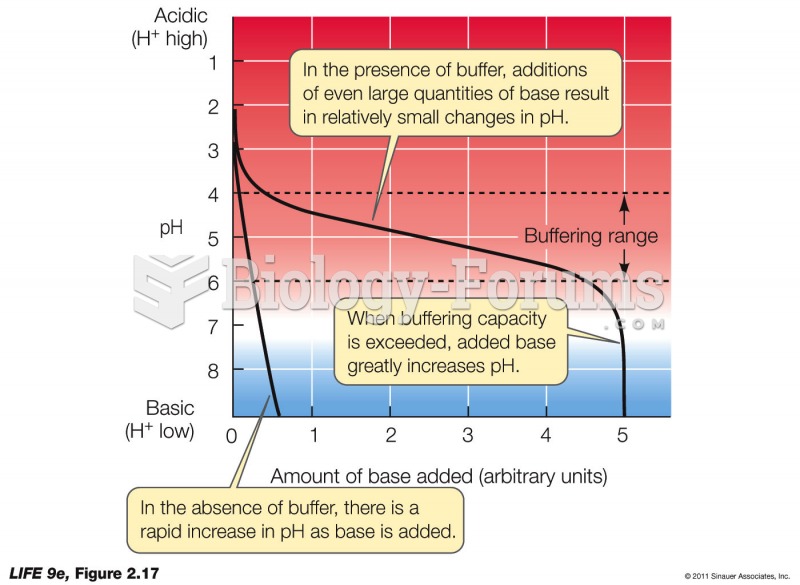|
|
|
In ancient Rome, many of the richer people in the population had lead-induced gout. The reason for this is unclear. Lead poisoning has also been linked to madness.
Eating food that has been cooked with poppy seeds may cause you to fail a drug screening test, because the seeds contain enough opiate alkaloids to register as a positive.
Pubic lice (crabs) are usually spread through sexual contact. You cannot catch them by using a public toilet.
Studies show that systolic blood pressure can be significantly lowered by taking statins. In fact, the higher the patient's baseline blood pressure, the greater the effect of statins on his or her blood pressure.
Drugs are in development that may cure asthma and hay fever once and for all. They target leukotrienes, which are known to cause tightening of the air passages in the lungs and increase mucus productions in nasal passages.
 Tubal ligation. To minimize the size of the incisions necessary, laparoscopic surgery may be used to
Tubal ligation. To minimize the size of the incisions necessary, laparoscopic surgery may be used to
 Chinese workers on a railway in the far West. “Without them,” Leland Stanford, president of the Cent
Chinese workers on a railway in the far West. “Without them,” Leland Stanford, president of the Cent





